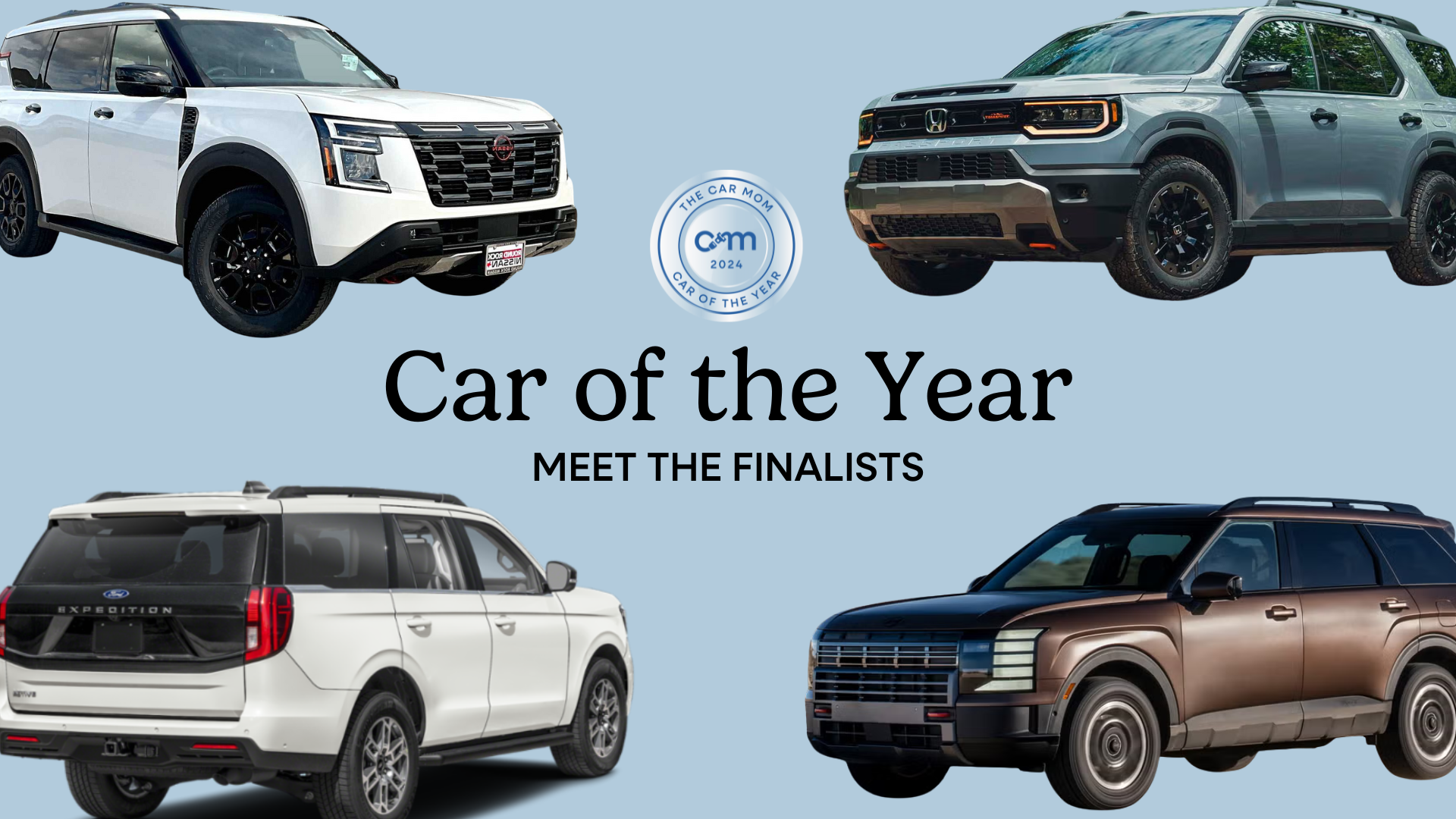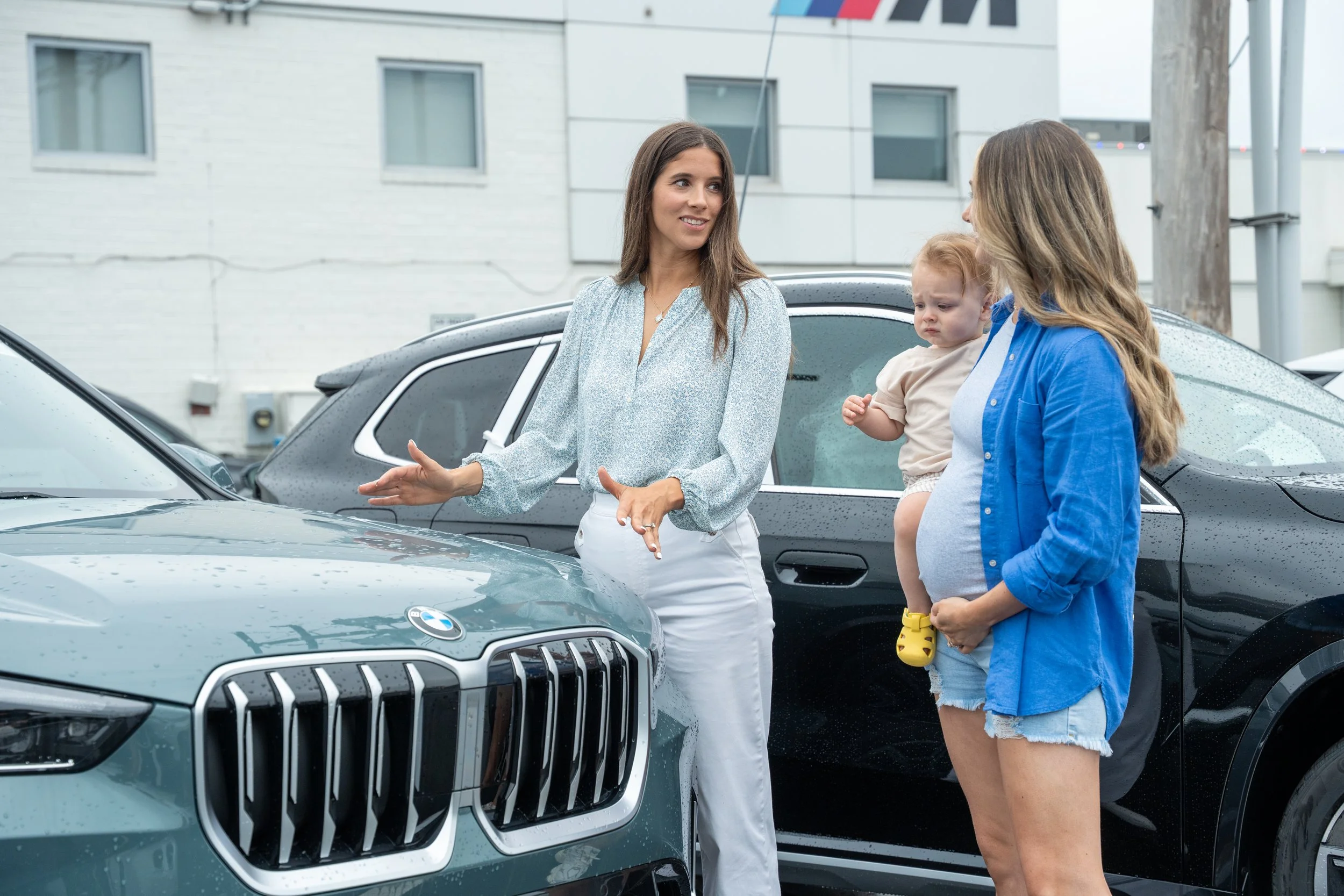The Safest Family SUVs | What IIHS Crash Tests Mean For Families
It’s a big day for the Carpoolers! This week, the IIHS released recent crash test results and it revealed some surprising and concerning findings for large SUVs. For the first time EVER, the IIHS tested three popular large SUVs: the Chevrolet Tahoe, Ford Expedition, and Jeep Wagoneer.
We were so lucky to have the opportunity to interview Jessica S. Jermakian VP of Vehicle Research at the IIHS to get her take on these results and break down what it means for families.
This was the first time IIHS put the top three SUVs (by volume sold) through the wringer (in terms of safety standards), and I’m so grateful to them for making this possible. It’s a general thought large SUVs are typically “safe” because of their size, but it turns out there are some important areas that need more attention.
Of the three SUVs tested, only ONE was awarded the “Top Safety Pick”... and the recipient was a big surprise to me!
Without any further introduction, let’s dive into breaking down what these IIHS safety ratings mean for some of the top full-size family cars on the market.
What Is IIHS Testing?
The IIHS (Insurance Institute for Highway Safety) is an organization independent from any manufacturer that’s dedicated to evaluating vehicle safety. They conduct rigorous crash tests and assess various safety features to determine how well car protect their passengers in the event of a crash.
IIHS rankings help anyone purchasing a car avoid certain cars that could potentially cause harm in accidents. For families specifically, this is really important for peace of mind and overall caution when loading up your kids on a daily basis.
If you’re interested in reading a full breakdown of IIHS testing and how it operates read my post - IIHS Top Safety Picks: Which Family Cars Made The List.
Why The IIHS Is Testing SUVS
The IIHS is now testing full-size SUVs because the demand is here! Full-size SUVs have slowly been gaining popularity over the last decade and I knew the time would come when the IIHS would eventually notice. I’m thrilled that we are now able to see how these family haulers perform since so many of us use them in our everyday lives.
I want to make it clear - manufacturers HAVE to crash test all their cars to be legally sold in the U.S. Every car on the market is government crash test certified to be safe enough on the road. From there, the IIHS takes it a step further and provides consumer ratings to test where they see gaps.
2024 IIHS Full-Size SUV Results Overview:
Before we do a deep dive into how each full-size SUV performed, I wanted to give a quick overview. The three cars who received IIHS ratings are: the Jeep Wagoneer, Chevrolet Tahoe, and Ford Expedition.
These cars have been some of my top recommendations for families (and one of our personal cars), so let’s talk about their IIHS safety results:
Jeep Wagoneer:
Best overall performer, earning a 2024 Top Safety Pick award.
Still needs improvements for backseat passenger protection to qualify for the Top Safety Pick+ award.
Chevrolet Tahoe:
Acceptable rating for driver-side small overlap crash test but poor for passenger-side.
Significant issues with protecting lower legs and backseat passengers.
Marginal pedestrian crash avoidance due to poor nighttime visibility and headlights.
Ford Expedition (what I drive):
Marginal rating for small overlap crash test due to structural failures.
Similar backseat safety issues as the other models.
Good pedestrian crash avoidance but needs better headlights.
IIHS Safety Breakdown By Car:
Although their results are no longer a surprise, I still think it’s important to break down the specifics of how each full-size SUV did during the specific tests. Yes, two of these cars did not get an IIHS Top Safety Pick Award, but it’s important to know why before you start to worry about your current car or future purchase.
If you’re curious to see the IIHS News video describing (and showing) the safety breakdown of each car, watch the video here.
Chevrolet Tahoe
Small Overlap Front Crash Test:
Driver-Side Test: The Tahoe kept the driver's space mostly intact, but there was a lot of footwell intrusion, posing a high risk of lower leg injuries.
Passenger-Side Test: The passenger side was even worse, with serious footwell intrusion leading to high risk of injury to the right foot and moderate risk to the left leg.
Updated Moderate Overlap Front Test:
The dummy in the backseat showed a high risk of head or neck injuries. The seatbelt also moved out of place, increasing the risk of abdominal injuries along with chest injuries.
Pedestrian Crash Avoidance Test:
The Tahoe earned a low rating. It did not slow down enough or avoid hitting the pedestrian dummy at night. Its headlights, which are not very good, make it harder to see pedestrians in the dark.
Ford Expedition
Small Overlap Front Crash Test:
Driver-Side Test: The Expedition's structure did not hold up well. Parts of the car, like the steering column and A-pillar, came loose. There was a lot of footwell intrusion, posing a high risk of injury to the driver's right leg.
Passenger-Side Test: The passenger side also showed footwell intrusion but to a lesser extent.
Updated Moderate Overlap Front Test:
The dummy in the backseat showed a high risk of chest injuries due to the seatbelt forces. Even though it had some advanced safety features, they didn’t help enough.
Jeep Wagoneer
Small Overlap Front Crash Test:
Driver-Side Test: The Wagoneer maintained good space for the driver and front passenger, though there was slight footwell intrusion posing a small risk to the driver's left foot and ankle.
Passenger-Side Test: The airbags worked well to protect the dummies' heads, and there was no other significant risk of injury.
Updated Moderate Overlap Front Test:
Similar to the Expedition, the dummy in the backseat showed a fairly high risk of chest injuries due to the seatbelt forces.
Pedestrian Crash Avoidance Test:
The Wagoneer did well, avoiding collisions with the pedestrian dummy in most of the tests, both day and night. Its headlights are better, which helped it perform better in these tests.
Kelly’s Hot Take:
Of course, I would have liked to see large SUVs perform better and I’m very surprised by the results. Am I worried about driving my Ford Expedition Max this weekend? I’m not, and neither should you.
I know I’m doing everything I can to keep my family safe by ensuring everyone is wearing their seatbelts and the kids are properly secured in their car seats. We have to focus on controlling what we can control.
My hope is that this is a jumping-off point for manufacturers to make meaningful changes in future models. Safety should always be a top priority, and with these new insights, we can look forward to even better and safer cars on the road.
For a detailed breakdown of how each car performed on each test, click here to view the findings directly from the IIHS.
As a parent, you make the best decision for your family at the time. So whether you purchased a full-size SUV before these IIHS results or after, you are a good parent who is making the correct choice.
“Kelly, should I buy a Wagoneer?”
The Wagoneer is one of the most expensive SUVs on the market, but I'm pleased to see it earn a top safety pick. If the Wagoneer is already one of your top contenders, these safety ratings should give you even more confidence in your choice.
However, if the Wagoneer wasn’t on your radar initially, don’t let this be the sole reason for your purchase.
What we love about this car:
It's a luxury vehicle that truly feels ultra-luxurious
Built-in sun shades
Car seat tilt feature
Amazing trunk space
Despite these great features, it doesn’t have the same reliability as some other SUVs and, of course, it comes with a high price tag.
The Wagoneer’s Top Safety Pick award highlights the availability of advanced technology and structural capabilities to create safer SUVs. This is precisely why the IIHS conducts these tests – to push manufacturers to enhance safety for everyone. We love to see it!
These results show that while some large SUVs are better than others, there is still a need for improvements to keep all passengers safe, especially those in the backseat!
If you’re curious to hear our interview all about the full-size SUV IIHS testing, check out our podcast - The Carpool with Kelly and Lizz!
How do you feel about the safety performance of these full-size SUVs? Let me know in the comments! And to keep up with the latest car buying information for families, check out my recent posts:






